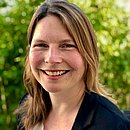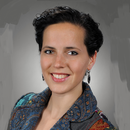The "Hopp Children's Cancer Center Heidelberg" (KiTZ) is a joint institution of the German Cancer Research Center (DKFZ), Heidelberg University Hospital (UKHD) and Heidelberg University.
When standard therapies fail in the treatment of children with cancer, molecular procedures can lead the way to new, targeted drugs. But what if they alone do not deliver the hoped-for key to treatment success? "Then we apply high-throughput microscopy techniques to investigate whether the tumor tissue is responsive to a library of clinically approved drugs, adding a valuable dimension to diagnostics," said Olaf Witt, director of the Translational Program at the KiTZ and head of the Division of Pediatric Oncology in the Clinical Cooperation Unit of the German Cancer Research Center and the Heidelberg University Hospital. "Combining the functional image-based drug response data with the information obtained through molecular analyzes, we obtain more accurate evidence of promising therapeutic approaches in previously incurable childhood cancer."
This forms the approach of the new project COMPASS (Clinical implementation Of Multidimensional PhenotypicAl drug SenSitivities in paediatric precision oncology), which is funded by the European consortium ERA PerMed with 1.5 million euros over a period of three years. ERA PerMed is an association focused on the promotion of personalized medicine projects, with 32 partners from over 23 countries. It is co-funded by the European Commission.
"The goal is to build an international, standardized and validated platform for drug testing based on image analysis and accompanying molecular analysis that characterizes and classifies different types of tumors for their response to different drugs," said KiTZ staff member Sina Oppermann, Scientific Coordinator of the COMPASS project. "In the long run, the data will be translated into clinical trials at the KiTZ, so that affected children benefit as quickly as possible from the findings."
In addition to the KiTZ with its European children's oncology platform "INFORM", five other scientific institutions are partners in the COMPASS project: the Institute Curie (Paris, France), Princess Máxima Center for Pediatric Oncology (Utrecht, The Netherlands), Academic Medical Center,University of Amsterdam (AMC) (Amsterdam, The Netherlands), Institute for Molecular Medicine Finland (FIMM) and University of Helsinki (Finland) and the startup company Single Cell Technologies Inc. (Szeged, Hungary).
Press contact:
Dr. Elke Matuschek
Hopp Children's Cancer Center Heidelberg (KiTZ)
Press and Public Relations Officer
Im Neuenheimer Feld 130.3 / 7.320
D-69120 Heidelberg
T: +49 (0) 6221 56 36434
e.matuschek@kitz-heidelberg.de
presse(at)kitz-heidelberg.de




